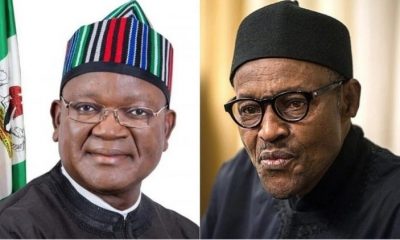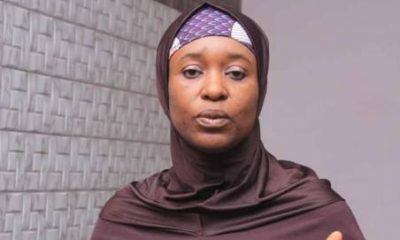News
Africa Lagging In Global Development Due To Corruption — Buhari
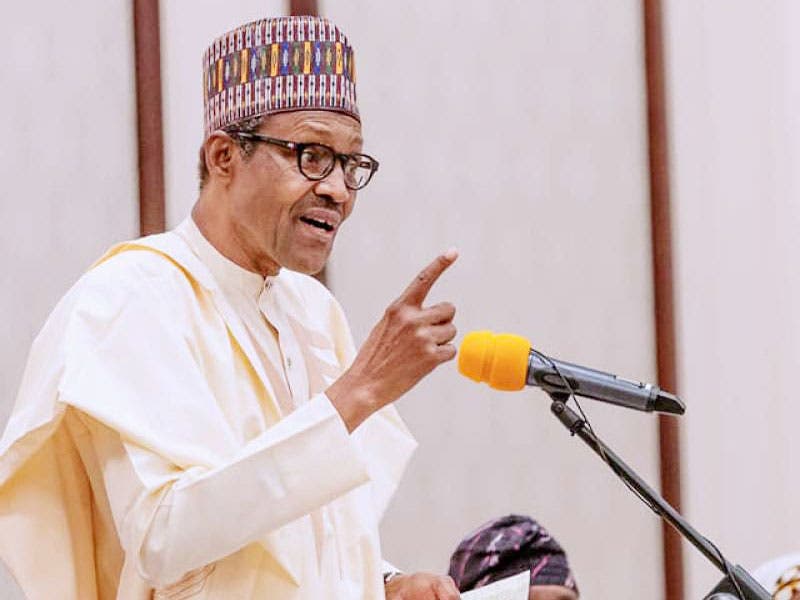
Why Africa Lagging In Global Development Due To Corruption — Buhari
President Muhammadu Buhari says Africa has remained at the far end of the global development index due to the menace of corruption.
The President spoke in New York in his capacity as the African Union Champion on efforts to eliminate corruption in the continent at a High-Level side event on ”Food Security Response: Combating Illicit Financial Flows and Securing Asset Returns for Sustainable Development’‘, on the margins of the 77th Session of the UN General Assembly.
He urged African leaders to fight tirelessly to get rid of corruption.
Buhari, who provided his perspectives on the effects of corruption in the continent and the way forward at the event co-hosted by the African Union Development Agency-New Partnership for Africa’s Development (AUDA-NEPAD) and the Economic and Financial Crimes Commission (EFCC), said he was honoured to serve as AU Champion on anti-corruption since 2018.
He said, ”Over the years, we came to the painful realisation on how deeply embedded corruption has become in our countries and continent, as well as how corrosive it can be. Corruption has dwarfed our growth and tainted our nations and continent. Africa remains at the far end of the development index and concerted efforts made in the last few years need to be sustained, and deepened by good governance and accountability that are guided by the rule of law.
”I have strong faith that Africa and our national governments can do this with strong resolve and commitment to eliminating Illicit Financial Flows. We need strong partnerships from our global partners to ensure that these efforts succeed. A developed and stable Africa will not only be a global partner for peace but for sustainable development and progress.”
President Buhari, therefore, challenged his colleagues that for the continent to rise to its full potential, ”we must work tirelessly to get rid of corruption or by fighting it 24/7.”
”Our national resources must not find safe havens around the world. This fight is a necessity and not a choice to give our citizens a better life through economic prosperity, social peace and security,” he added.
The President, in a statement issued by his spokesman, Femi Adesina, urged his colleagues to recall the United Nations General Assembly Special Session Against Corruption political declaration of June 2021 and ensure its effective implementation toward global food security and sustainable infrastructural development in the continent.
Buhari, however, emphasised that the goals could not be achieved if corruption, illicit financial flows, and serious and organized crimes were not effectively addressed.
”Rice, wheat and fertilizer imports were riddled with gross corrupt practices such as over-invoicing and transfer pricing. It is only when these crimes are contained that we can secure the recovery and return of illicitly acquired assets to victim countries, which will then provide the much-needed resources in the immediate term, to address development requirements,’’ he said.
Commenting on the global food crisis, Buhari expressed concern that criminals were taking advantage of the global food crisis to perpetrate illicit financial flows, especially with the ongoing crisis in Ukraine disrupting energy and food supply chains, thus, negatively impacting the global economy.
Buhari said the crisis in the energy and food supply chains demanded an urgent response from all leaders in governments, global institutions and businesses to re-think the best approaches to address new and old global challenges.
In her remarks, the Chief Executive Officer of AUDA-NEPAD Nigeria, Princess Gloria Akobundu, said the event “is a continuation of the advocacy on good governance that started in 2017 and was adopted by the Forum in 2018 as an annual event with the objective to promote peer-to-peer learning for best practices and strengthen partnership for good governance.”
The Attorney General and Minister of Justice, Abubakar Malami, said reports from law enforcement agencies, especially the Economic and Financial Crimes Commission (EFCC), showed that illicit financial flows undermined efforts for development, including food security.
-

 Entertainment4 days ago
Entertainment4 days agoNigerian Singer, Ifunanaya, Died After Snake Bite In Abuja
-
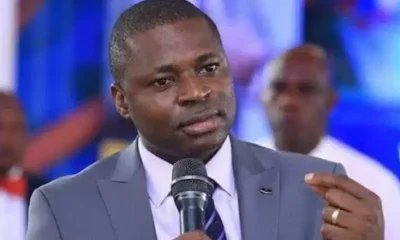
 News5 days ago
News5 days agoI’ll Rather Build Industries Than Build Mega Churches — Prophet Sam Ojo
-
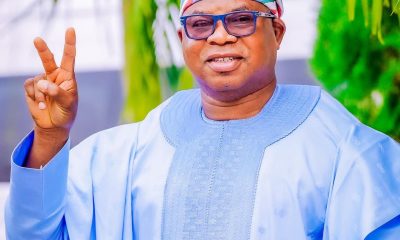
 Opinion4 days ago
Opinion4 days agoBola Oyebamiji: Beyond Skelewu Dancer: The Rising Technocrat Poised To Govern Osun State In 2026 By Wale Atoba
-
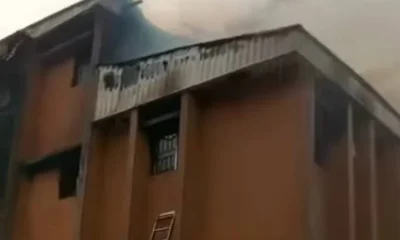
 News5 days ago
News5 days ago95-Year-Old Woman Dies As Fire Guts Residential Building In Anambra





